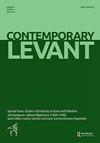Incarcerating the insane: debating responsibility for criminal lunatics between prisons, hospitals, and families in British mandate Palestine
Q1 Arts and Humanities
引用次数: 3
Abstract
Although much has been written about counterinsurgency, policing, and incarceration under the British mandate in Palestine, little work has been done on those who entered the ambit of the carceral system as ‘criminal lunatics’. Criminal lunatics – the term used at the time to specifically designate those found ‘guilty but insane’ by the mandate’s criminal courts, and retained throughout this article both for the sake of analytic clarity and to avoid misdiagnosing individuals by the retrospective imposition of contemporary medical terms – confounded the mandatory government by potentially falling under the responsibility of both its criminal-legal and medical wings. While the focus in the wider scholarship on psychiatry has often been on its expansionist appetites, the struggle over responsibility for criminal lunatics in mandate Palestine offers a case study in the reverse; an attempt to abdicate, not aggrandise, as the health department staved off repeated efforts to make them take responsibility for these cases. This article traces these disputes, and the development of a distinct institutional landscape attendant on their outcome. But the fate of criminal lunatics was not merely determined by debates internal to government; families were important interlocutors too, who variously sought the release of their incarcerated mentally ill relatives, or – more worryingly for the mandate – exploited the criminal-legal system as a back-door to the overcrowded and underfunded government mental institutions. Far from seeing psychiatry as a tool of social control, the government expressed concern about the potential misuse of psychiatric ideas, processes, and institutions by Palestinian families as a way to escape obligations to mentally ill relatives. Foregrounding these fraught contestations brings into focus the sharp limits of the mandate’s ambitions in the sphere of the intimate, and the attempts of some Palestinians to expand those limits for their own ends.监禁精神病患者:在英国托管的巴勒斯坦监狱、医院和家庭之间就精神病罪犯的责任展开辩论
尽管关于英国在巴勒斯坦的反叛乱、治安和监禁已经写了很多文章,但对于那些以“犯罪疯子”的身份进入尸体系统的人,却几乎没有做什么工作。犯罪疯子——当时用来专门指定那些被授权的刑事法院认定为“有罪但精神失常”的人的术语,并保留在本文中,既是为了分析的清晰性,也是为了避免通过追溯性地强加当代医学术语来错误诊断个人——这让强制性政府感到困惑,因为它可能同时承担刑事法律和医学部门的责任。虽然在更广泛的精神病学学术中,焦点往往集中在其扩张主义欲望上,但巴勒斯坦统治下的犯罪疯子的责任之争提供了一个相反的案例研究;这是一种放弃而非夸大的尝试,因为卫生部门避免了让他们对这些病例承担责任的反复努力。本文追溯了这些争议,以及伴随其结果而来的独特制度景观的发展。但犯罪疯子的命运不仅仅是由政府内部的辩论决定的;家庭也是重要的对话者,他们以各种方式寻求释放被监禁的精神病亲属,或者更令人担忧的是,他们利用刑事法律体系作为通往过度拥挤和资金不足的政府精神机构的后门。政府非但没有将精神病学视为社会控制的工具,反而对巴勒斯坦家庭可能滥用精神病学思想、过程和机构来逃避对精神病亲属的义务表示担忧。为这些令人担忧的争论做铺垫,使人们关注到该授权在亲密领域的野心受到了极大的限制,以及一些巴勒斯坦人为了自己的目的试图扩大这些限制。
本文章由计算机程序翻译,如有差异,请以英文原文为准。
求助全文
约1分钟内获得全文
求助全文

 求助内容:
求助内容: 应助结果提醒方式:
应助结果提醒方式:


